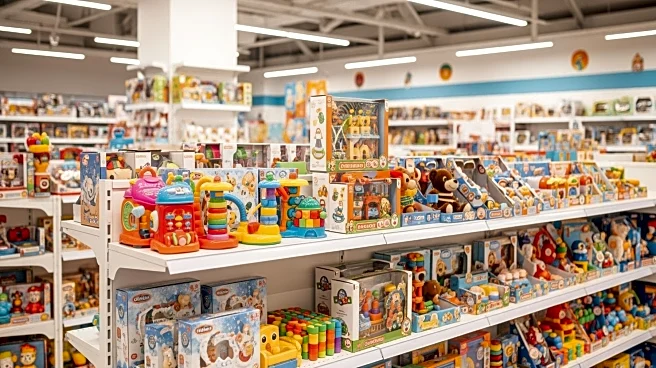What's Happening?
Mattel, a leading toy manufacturer, reported a 6% decline in net sales for the third quarter, amounting to $1.7 billion. The company's net income also fell by 25% to $278.4 million, with gross margins
dropping by 310 basis points to 50%. These declines are attributed to factors such as currency exchange fluctuations, inflation, tariffs, and increased sales adjustments, although some cost savings were realized. CEO Ynon Kreiz expressed optimism about consumer demand, which has remained strong throughout the year. The company is relying on a robust holiday season to offset the third-quarter shortfall, with expectations of continued point-of-sale strength and retailer restocking.
Why It's Important?
The holiday season is crucial for Mattel as it seeks to recover from a disappointing third quarter. The company's performance during this period will significantly impact its annual financial results. Analysts from Jefferies and UBS have highlighted the risks associated with the current sales decline, emphasizing the importance of holiday demand. The toy industry as a whole is experiencing growth, which could benefit Mattel if it capitalizes on the momentum. However, the company faces challenges from tariffs imposed by the Trump administration, which have altered import and shipping strategies, potentially affecting profitability.
What's Next?
Mattel is preparing for the holiday season by managing inventory levels and adjusting to new import duties. The company ended the third quarter with $827 million in inventory, reflecting tariff-related costs and a shift from direct import to domestic shipping. Retailers are restocking in anticipation of strong consumer demand, which bodes well for Mattel's year-end performance. However, the full impact of tariff costs is expected to manifest in the fourth quarter, and the company has yet to decide on further pricing adjustments to counter inflationary pressures.









